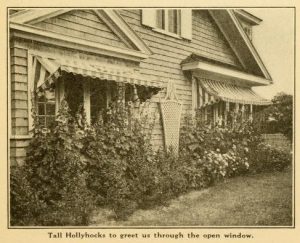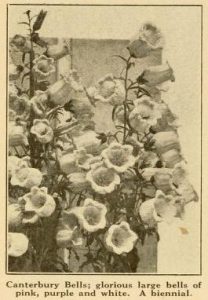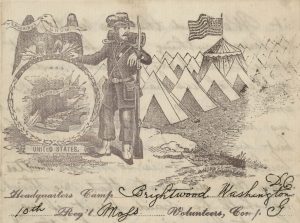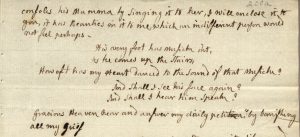by Katy Morris, Research Coordinator & Book Review Editor
As an institution that has collected since 1791, the MHS offers spectacular opportunities to conduct cutting-edge research on the nation’s past. Our collections consist of manuscripts, portraits and artifacts, photographic images, newspapers, maps, and the personal papers of three presidents. These carefully preserved items lay nestled in their designated folders, boxes, and storage rooms awaiting the curious minds and discerning eyes of scholars who will ask questions that lead to new ways of telling the American story.
Every year, the Research Department at the MHS administers roughly a quarter million dollars in research support to help scholars from all career stages access our remarkable collections. These fellowships range from short-term funding (4-8 weeks) to long-term residency (4 to 12 months). Hundreds of graduate students, historians, literary scholars, art historians, and independent researchers submit their applications for consideration. Our selection committees review these diverse proposals and carefully select the very best for funding. We look for projects that make good use out of our collections, that thoughtfully present their ideas, and that make significant contributions to their particular field of study.
After months of review, we are proud to announce the fellowship winners for the 2019-2020 year. This cohort of fellows explores a wide variety of topics, such as the histories of motherhood, race and citizenship, empire and colonialism, maritime cultures, twentieth-century politics, popular literature, education, domesticity, abolition, Jewish identity, animals and the environment, medicine, and sexuality. Over the next year, these research fellows will travel to the archive to comb through the documents and artifacts that shed light on the past. They will stumble upon new discoveries, labor patiently over seemingly impenetrable records, and spend long hours interpreting the past.
They will also join the humming research community at the MHS. In additional to administering fellowship awards, the Research Department offers a range of programming that bring together academics and the public to workshop research projects, talk shop, and enjoy history together. At brown bag lunch talks and seminar sessions, research fellows will have the opportunity to share their work and connect with other scholars. Keep an eye on our calendar and come join the conversation.
Congratulations to our incoming fellows – we can’t wait to learn more about your work!
MHS Research Fellows, 2019-2020
MHS-NEH Long-Term Fellows
Lauren Duval
American University
The Home/Front: Gender, Domestic Space, & Military Occupation in the American Revolution
Sean Griffin
Lehman College
Labor, Land, and Freedom: Antebellum Labor Reform & the Rise of Antislavery Politics
Peter Wirzbicki
Princeton University
The Abolitionist Nation: An Intellectual History of Nation, Democracy, & Race During Reconstruction, 1863-1877
Kelly O’Donnell
Thomas Jefferson University
Hippocratic Vows: How the Doctor’s Wife Transformed American Medicine
Suzanne & Caleb Loring Fellowship on the Civil War, Its Origins, and Consequences
Kevin Hooper
University of Oklahoma
Seizing Citizenship: African Americans, Native Americans, & the Pursuit of Citizenship in the Antebellum United States
MHS Short-Term Fellows 2019-2020
African American Studies Fellowship
Aston Gonzalez
Salisbury University
Brilliant Contests: Black Genius during the Long Nineteenth Century
Andrew Oliver Research Fellowship
Chip Badley
University of California, Santa Barbara
The Practiced Eye: Painting & Queer Personhood in Nineteenth-Century America
Benjamin F. Stevens Fellowship
David J. Gerleman
George Mason University
History on the Hoof: New England’s Horse and Cattle Industry During the American Civil War
Conrad & Elizabeth H. Wright Fellowships
Kristen Beales
The College of William & Mary
Thy Will Be Done: Merchants and Religion in Early America, 1720-1815”
Malcolm & Mildred Freiberg Fellowship
Lance Boos
Stony Brook University
Print & Performance: The Development of a British Atlantic Musical Marketplace in the Eighteenth Century
Marc Friedlaender Fellowship
Miriam Liebman
City University of New York
A Tale of Two Cities: American Women in Paris and London, 1780-1800
Massachusetts Society of the Cincinnati Fellowship
Catherine Treesh
Yale University
Creating a Continental Community: Committees of Correspondence & the American Revolution
Military Historical Society of Massachusetts Fellowship
Thomas Rider
University of Wisconsin – Madison
War by Detachment: the Continental Army & Petite Guerre
Ruth R. Miller Fellowships
Abena Boakyewa-Ansah
Vanderbilt University
The Currency of Freedom: Black Women & the Making of Freedom During the American Civil War
Erica Schumann
Binghamton University
A Republic of Numbers: Enumeration and Ideology in the Early American Household
B. H. Dowse Fellowships
Nicholas Garcia
University of California, Davis
The New England Company & the Rise of English Colonialism
James Farwig
Ohio State University
‘Any Indyan which they shall attain to’: Slavery & Early Intercultural Contact in North America and the Caribbean
Andrew W. Mellon Fellowships
Yuri Amano
Johns Hopkins University
Bodies in Pain: The Medical Culture of Sympathy in the United States (1830-1865)
Elizabeth Herbin-Triant
University of Massachusetts Lowell
The Lords of the Lash & Loom: Abolitionists, Anti-Abolitionists, & the Business of Manufacturing Slave-Grown Cotton
Samantha Payne
Harvard University
The Last Atlantic Revolution: Race & Reconstruction in Cuba, Brazil, & the United States, 1865-1912
Patrick Browne
Boston University
The Ordeal of Homecoming: Northern Civilians & the Social Response to the Returning Union Veteran
Matthew Gallman
University of Florida
Loyal Dissenters, Angry Copperheads, & Violent Resisters: The Northern Democratic Party & the American Civil War
Michael D’Alessandro
Duke University
Staged Readings: Contesting Class in Popular American Literature & Theatre, 1830-1875
Todd Whelan
Graduate Theological Union
Calling the Unconverted: Jews, Indians, & Missionary Publishing in the Protestant Atlantic World, 1649-1830
Madeline Zehnder
University of Virginia
Pocket-Sized Nation: Cultures of Portability in America, 1790-1840
Lila Teeters
University of New Hampshire
Native Citizens: The Fight Over Native American Citizenship in the United States, 1866-1924
Louis Leonard Tucker Alumni Fellowship
Hannah Smith
University of Minnesota
The ‘Midwifery Debates’ in Britain & Early America
Yoav Hamdani
Columbia University
Uncle Sam’s Slaves: Slavery in the United States Regular Army, 1797-1865
New England Regional Fellowship Consortium
Asaf Almog
University of Virginia
Looking Backward in a New Republic: Conservative New Englanders & American Nationalism, 1793-1854
Kathryn Angelica
University of Connecticut
Career Activists: Women’s Organization & Social Reform in New England, 1830-1890
Catherine Sasanov
Independent scholar
The Last & Living Words of Mark: Following the Clues to the Enslaved Man’s Life, Afterlife, & to His Community in Boston, Charlestown, & South Shore Massachusetts
Lilian Barger
Independent scholar
A Cultural History of Feminist Thought & the Gender Revolution, 1750-2000
Lucian Bessmer
Harvard University
What Should We Teach Our Teachers? The Changing Educational Priorities in New England, 1950-1990
Nicole Breault
University of Connecticut
The Night Watch of Early Boston
Lily Brewer
University of Pittsburgh
Contemporary Landscape: Photography & the Post-9/11 United States Frontier
Robert S. Bridges
University of Georgia
‘Dragged up hither from the sea’: The New Bedford Whaling Industry & Linkages to Capitalist Development
Emily Clark
Johns Hopkins University
Renouncing Motherhood: Women’s Sexualities & Labors in Eighteenth-Century New England
Christopher Costello
University of California San Diego
A Vast Consolidation: Everyday Agents of Empire, the United States Navy, & the Processes of Pacific Expansion, 1784-1861
Mary Eyring
Brigham Young University
Saltwater: Globalizing Early American Grief
Andrew Fogel
Purdue University
Comics & the Politics of Jewish Identity in America, 1938-1955
Elizabeth Groeneveld
Old Dominion University
Embodying Lesbianism: How 1980s Lesbian-Made Pornography Reimagined Sex & Power
Cory Haala
Marquette University
The Progressive Center: Midwestern Liberalism in the Age of Reagan, 1978-1992
Amber Hodge
University of Mississippi
The Meat of the Gothic: Animality & Social Justice in United States Fiction & Film of the Twenty-First Century
Chad Holmes
West Virginia University
Sheriffs, Capitalism, & Civil Society in Early Republic New England
Kevin Hooper
University of Oklahoma
Seizing Citizenship: African Americans, Native Americans, & the Pursuit of Citizenship in the Antebellum United States
Jared Lucky
Yale University
Cattle, Empire, & ‘Cowboys’ in Colonial New England
Matthew Marsh
University of North Dakota
Byzantium in the Long Late Antiquity
John Morton
Boston College
To Settle the Frontier on Sober Principles: Power, Faith, & Nationality in the New England-Maritime Borderlands
Kevin Murphy
State University of New York at Stony Brook
Coercion & Sworn Bond in the Eighteenth-Century British Atlantic
Minami Nishioka
University of Tennessee Knoxville
Civilizing Okinawa: Intimacies Between the American & Japanese Empires, 1846-1919
Leslie-William Robinson
Brown University
Morale & the Management of Men: The Control, Resistance, & Rebellion of Soldier-Workers in Early Twentieth-Century America
Peter Wirzbicki
Princeton University
The Abolitionist Nation: An Intellectual History of Nation, Democracy, & Race During Reconstruction, 1863-1877
Dylan Yeats
New York University
Shaping Northern Political Culture: Evangelical Networks & the Politics of State Building, 1790-1840















